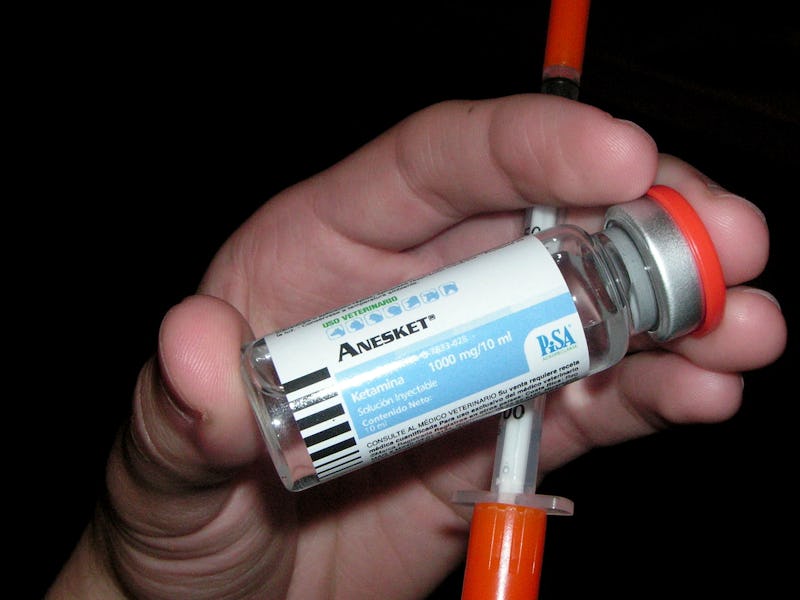Why Is Ketamine Good for Depression? Scientists Find a Possible Reason
How can ketamine can act quickly and last for so long when used on depression?

New research into why the anesthetic ketamine works to treat depression is reframing scientific understanding of the debilitating disease, and proving that we’re still learning how to treat it.
The study, published this month in the journal Molecular Psychology, looked at how ketamine works in the body to treat depression. Researchers from the University of Illinois at Chicago exposed rat brain cells to ketamine, finding that the drug worked to shift the location of G proteins in the cells. These proteins produce the chemical messenger that nerve cells need to send signals properly. By moving G proteins off “lipid rafts,” where they were inactive, the ketamine set these proteins up to start producing more of the chemical messenger.
Ketamine.
David Feifel, one of the pioneers in using ketamine to treat depression, says the study suggests that blocking N-methyl-D-aspartate (NMDA for short) receptors may not be the important action of Ketamine when it comes to its antidepressant effect.
This is important because it supports a broader thesis that we don’t fully understand about the mechanisms of depression. Ketamine is a faster-acting depression treatment than selective serotonin reuptake inhibitors like Prozac or Zoloft, which take weeks to work. Meanwhile, Ketamine provides relief within hours of being given to patients as an injection. Previously, most scientists thought that it worked by blocking a receptor that helps transmit signals in nerve cells, but this new study found that the ketamine worked even when the receptors were artificially blocked, having the same effect on cells.
“When G proteins move out of the lipid rafts, it allows for better communication among brain cells, which is known to help alleviate some of the symptoms of depression,” study author Mark Rasenick says. In a previous study, Rasenick and colleagues found that SSRIs also have this effect on G proteins.
However, SSRIs and ketamine are different in other ways. Initially, the rave drug and animal sedative was a counterintuitive and controversial choice, but in the past decade it has become a more mainstream choice to treat severe, otherwise-untreatable depression.
Feifel told the medical journal Lancet Psychiatry that his move to using ketamine was prompted by “the stagnation in current antidepressant medication” and the significant number of patients who aren’t responding to SSRIs or other traditional antidepressants.
“These are very interesting findings and reveal a potential mechanism of action for ketamine’s antidepressant effect,” Feifel told Inverse.com. But there’s a ways to go before the results can be considered the decisive answer, he says. “It is far from conclusive and there are currently many other candidate mechanisms for ketamine.” There’s one big question mark still: ketamine’s effects on speeding up G proteins were about the same as traditional antidepressants, so the results don’t explain why it is often more effective than conventional antidepressants.
Still, the finding does point to a way to understand and treat depression that doctors didn’t have before.
Rasenick tells Inverse that designing chemicals that move the G proteins could present “a novel target for antidepressant drugs — drugs that may look different from the current crop.”
Given the host of side effects associated with every antidepressant drug, whether conventional or ketamine, one can only hope.
See also: